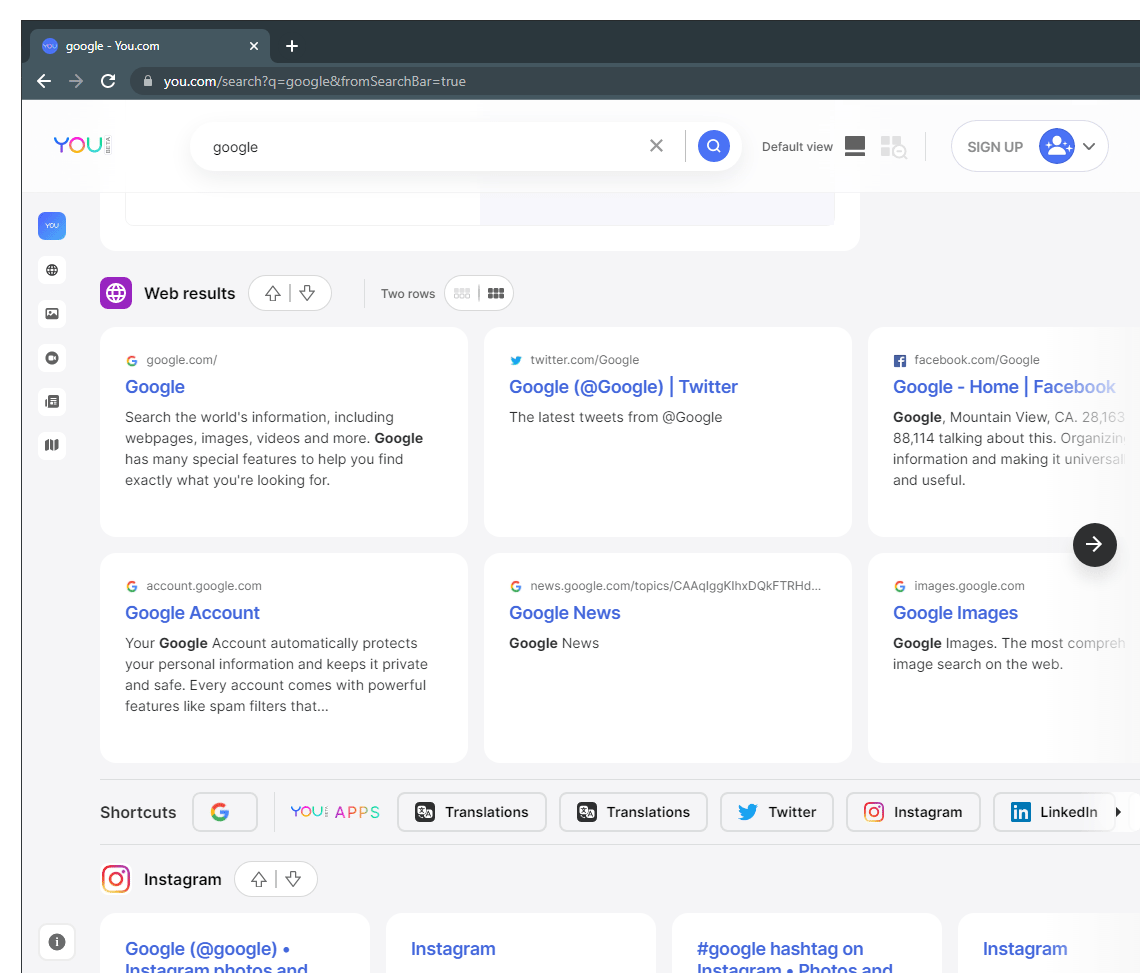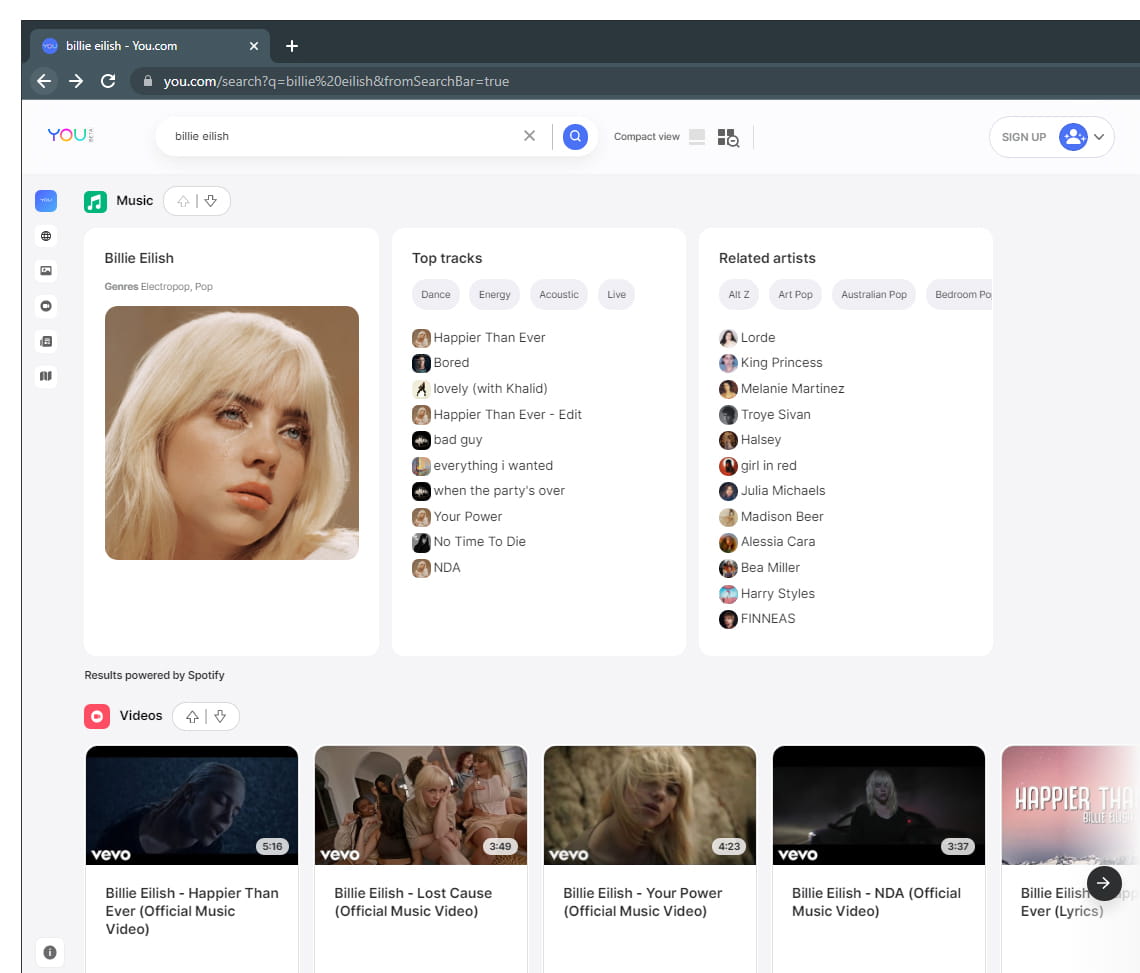
Google is the largest entity on the web and mobile. Nothing can stop it.
As the largest tech company the web has ever seen, the ubiquitous search engine, the operator of Android, the developer of Google Maps, Chrome and lots more, Google has enough resources and the capacity to defeat anything if not anyone who wish to confront it.
Only the young, the inexperience and the foolish that dare to compete with the tech giant.
At least directly.
Since practically nothing can stop Google from becoming the most powerful search engine on Earth, others in the competition that wish to have a share of the multi-billion dollar market, can try to go against the giant by competing with it indirectly.
In the past, Google has seen competitors like DuckDuckGo, Brave and more.
This time, it's You.
Read: How Search Engines Process Your Queries Determines Your Satisfaction
Google Search crawls, indexes and categorizes countless of information, and use that information to organize the way billions of people think about facts and data.
Google has done that for many years, and succeeded.
For more than plenty of times, everyday, a lot of people around the world use Google to look up for practically anything, from the obvious to the most bizarre.
Google Search has seen it all, and wish to see even more.
And You here, is trying to become a different search engine.
Instead of bulking up like Google, You is built around sorting and comparing search results.
The idea of You is that, the search engine not only include sources in generic categories like "web results" and "news," but also from specific sites like StackOverflow, Wikipedia, Twitter, Amazon, LinkedIn, and individual news sites like The New York Times.
This way, You allows users to get information from the sources they wish to see.
Users can also "upvote" and "downvote" specific categories, so when they run searches, they will see preferred sources first, neutral searches next, and downvoted sources last.
In other words, users can literally control how the search results should appear.
Richard Socher, former chief scientist at Salesforce who took the CEO title at You, said that his mission is to built a different type of search engine.
"The first page of Google can only be modified by paying for advertisements, which is both annoying to users and costly for companies. Our new platform will enable companies to contribute their most useful actual content to that first page, and—if users like it—they can take an action right then and there. Most companies and partners will prefer this new interface to people’s digital lives over the old status quo of Google," he said.

Socher said that the founders chose the name "You" because it’s about what "you" as the user who needs the search engine to search for something.
"We are true to our name. It’s about you. So you actually can choose here and say ‘I want to see more Reddit or I want to see less Reddit,'" he explained.
On the appearance side, You does not use a vertical-scrolling method to show results.
“The design actually took a lot of iterations. and we tried to have a beginner’s mindset and tried to really innovate with search. In some ways it’s crazy, but the main idea of a vertical list is now getting more and more interspersed and cluttered with other things [like ads] and hasn’t changed in 20 years,” Socher said.
To differentiate itself, You's design uses horizontal-scrolling method with card-like appearance for the entries, which are then separated by their sources.
Users can see the results, such as video or a code snippet, without having to open a new tab.
You also uses AI to create its search results, allowing it to tailor results better the more it is used.
And to differentiate it further from titans like Google and Bing, You is focusing on the privacy of users.
According to Socher, the entire economy is moving online, and Google is the gatekeeper.
“They’re invading privacy to squeeze out more and more performance,” he said, referring to the tech giant.
Socher continued to say that You is designed to make it simple to move in and out of Incognito mode. This way, users can ensure that their IP address is not stored.
While You does index some of its own content, just like many smaller search engines, You relies heavily on other engines.

At this time and at least initially, You is not selling user data to anyone or anything. It's focus for the time being, is growing its user base.
Socher said that the company will concentrate on monetization later, probably through ads.
Announcing the search engine in beta, You also announced a $20 million Series A investment led by Time Ventures, Socher's former employer, Marc Benioff’s private venture fund, with participation from Breyer Capital, Sound Ventures, Day One Ventures and a others.
While You promises unique experience that are not found on Google and others in the competition, You at the moment is nothing.
You toys with Google, like a young and weak bug trying to tickle a thick-skinned giant in its prime.
Google is already synonymous with the web and mobile, as well as with the word "search." It's the default search engine in almost all web browsers, both on mobile and desktop.
Google can literally kill You with a single swat.
But You is approaching Google where it lacks, and that is privacy.
With the growing concerns about privacy and Google's monopolistic business, You follows DuckDuckGo and Brave to fight Google indirectly, by to slipping through the crack Google can never get in.